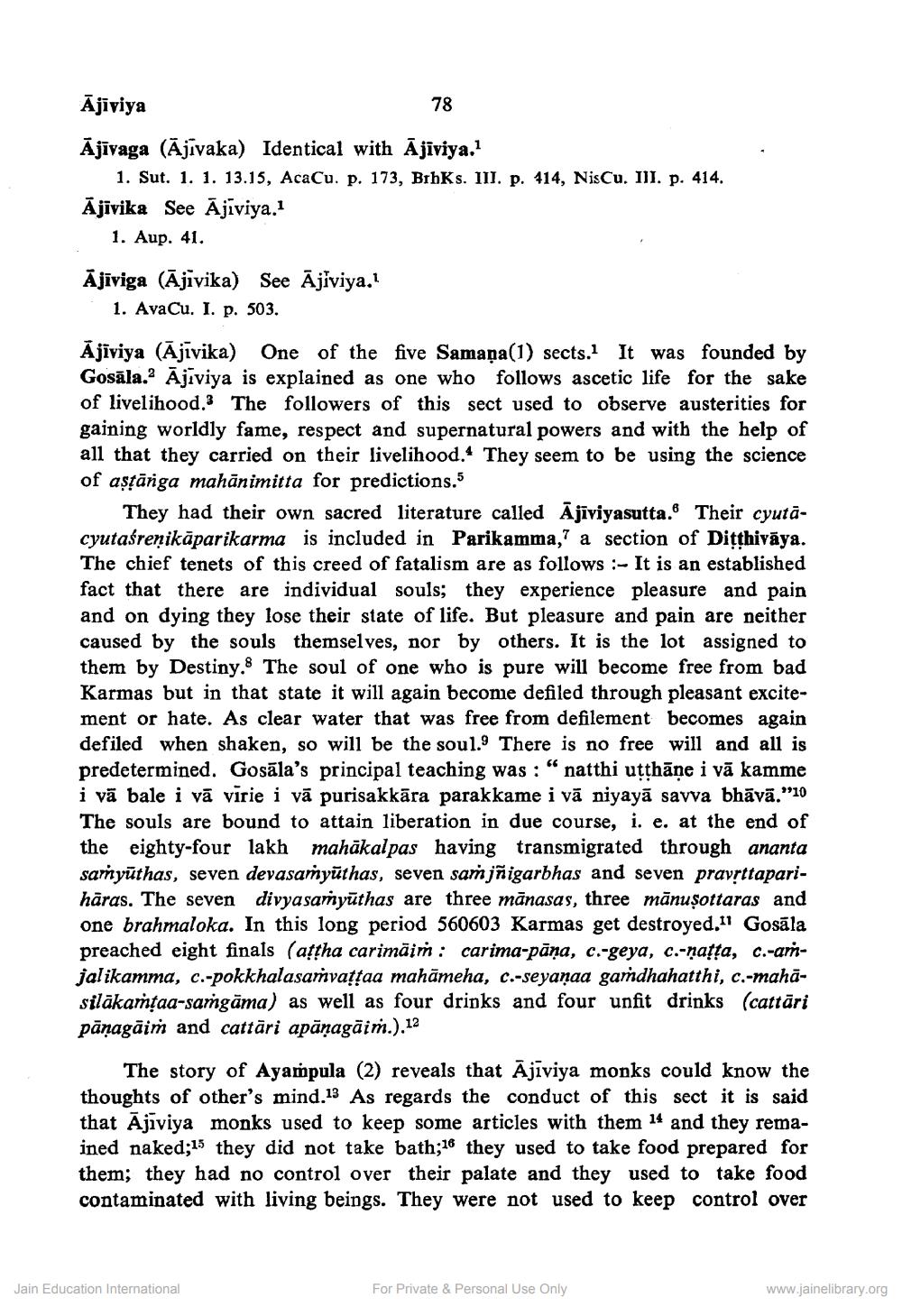________________
Ājiviya
78
Ājīvaga (Ājivaka) Identical with Ājīviya."
1. Sut. 1. 1. 13.15, AcaCu. p. 173, BhKs. III. p. 414, NisCu. III. p. 414. Ājivika See Ājiviya.1
1. Aup. 41.
Ājīviga (Ājivika) See Ājiviya.!
1. AvaCu. I. p. 503. Ājīviya (Ajīvika) One of the five Samaņa(1) sects. It was founded by Gosāla. Ājiviya is explained as one who follows ascetic life for the sake of livelihood. The followers of this sect used to observe austerities for gaining worldly fame, respect and supernatural powers and with the help of all that they carried on their livelihood." They seem to be using the science of așțārga mahānimitta for predictions.5
They had their own sacred literature called Ajīvivasutta. Their cyutācyutaśrenikāparikarma is included in Parikamma, a section of Ditthivāya. The chief tenets of this creed of fatalism are as follows :- It is an established fact that there are individual souls; they experience pleasure and pain and on dying they lose their state of life. But pleasure and pain are neither caused by the souls themselves, nor by others. It is the lot assigned to them by Destiny.8 The soul of one who is pure will become free from bad Karmas but in that state it will again become defiled through pleasant excitement or hate. As clear water that was free from defilement becomes again defiled when shaken, so will be the soul. There is no free will and all is predetermined. Gosāla's principal teaching was: “natthi utthāne i vā kamme i vā bale i vā virie i vā purisakkāra parakkame i vā niyayā savva bhāvā."10 The souls are bound to attain liberation in due course, i. e. at the end of the eighty-four lakh mahākalpas having transmigrated through ananta samyūthas, seven devasamyūthas, seven sam jñigarbhas and seven pravsttaparihāras. The seven divyasamyūthas are three mānasas, three mānuşottaras and one brahmaloka. In this long period 560603 Karmas get destroyed.11 Gosāla preached eight finals (attha carimāim : carima-pāna, c.-geya, c.-natta, c.-arjalikamma, C.-pokkhalasamvattaa mahāmeha, C.-seyanaa gardhahatthi, c.-mahāsilakamtaa-samgāma) as well as four drinks and four unfit drinks (cattāri pāņagāim and cattāri apāņagāim.).12
The story of Ayampula (2) reveals that Ājīviya monks could know the thoughts of other's mind.13 As regards the conduct of this sect it is said that Ajīviya monks used to keep some articles with them 14 and they remained naked;15 they did not take bath;16 they used to take food prepared for them; they had no control over their palate and they used to take food contaminated with living beings. They were not used to keep control over
Jain Education International
For Private & Personal Use Only
www.jainelibrary.org




